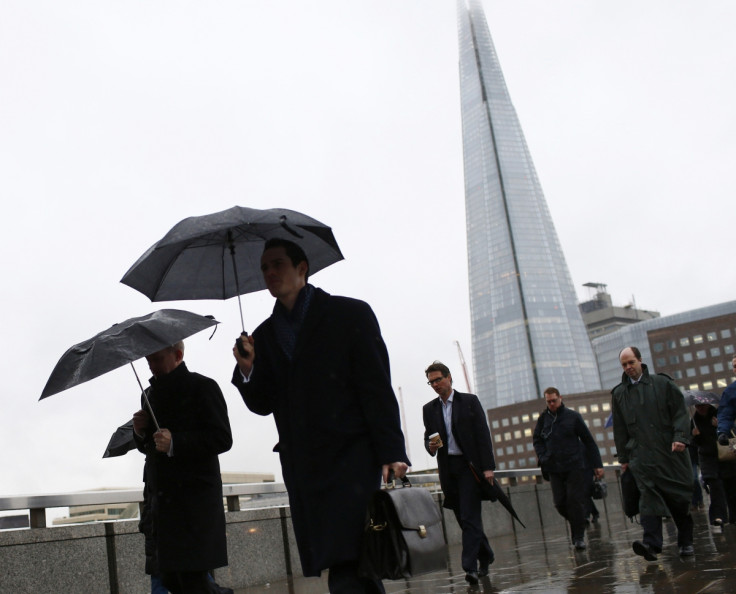UK wages fall behind inflation for the first time in three years
Average weekly earnings excluding bonuses fall 0.2% year-on-year in the three months to March.

Britain's basic wages are falling behind the rate of inflation, as real pay declined for the first time since 2014, but the unemployment rate hit a 42-year low.
According to the Office for National Statistics (ONS), basic salaries excluding bonuses grew 2.1% in the three months to March. While that was in line with expectations, it was lower than the 2.2% recorded in the previous quarter and the worst performance in seven months.
Average weekly earnings including bonuses, meanwhile, climbed 2.4% in the first quarter, in line with forecast and slightly higher than the 2.3% gain recorded in the previous month.
When adjusted for inflation, however, average weekly earnings fell 0.2% year-on-year when excluding bonuses and climbed 0.1% from a year earlier when bonus are taken into account.
Data released yesterday (16 May) by the ONS showed inflation rose at the fastest pace since September 2013 in April, climbing to 2.7% and remaining above the Bank of England's 2% target for the third consecutive month, after breaking through the threshold for the first time in three years in March.
"With inflation forecast to carry on rising household budgets look certain to be squeezed further in the coming months," said Ben Brettell, senior economist at Hargreaves Lansdown.
"The economy has surprised on the upside since last summer's referendum, powered by a resilient consumer, but it looks like households are now starting to feel the pinch."
UK labour market remains solid
Ian Stewart, chief economist at Deloitte, added: "In terms of creating jobs and getting people into work the UK is a world beater. Relative to other countries, and relative to the past, this is a standout success.
"The worry today is less about jobs and more about pay, with spending power shrinking once again as inflation has surged."
With subdued wage growth and rising inflation, households' budgets are likely to come under even further pressure over the coming months. Figures released tomorrow are expected to show retail sales grew 2.6% year-on-year last month, unchanged from March.
However, some analysts suggested the squeeze on real wages might not last as long as feared.
"As inflation begins to fall back next year as the upward pressures from the drop in the pound start to fade, we think real wages will begin to rise again," said Paul Hollingsworth from Capital Economics.
"As a result, the forthcoming squeeze on real wage growth should be nowhere near as severe or prolonged as that seen after the financial crisis.
There was slightly better news on the unemployment front, as the unemployment rate in the quarter through to March stood at 4.6%, compared with 5.1% in the corresponding period last year.
The figure was the lowest level on record since 1975, although earlier this week, the EY Item Club warned employment levels in the UK may decline for the first time in nearly a decade in 2018 as a result of a slowing economy and stagnant wage growth
The think tank expects the unemployment rate to rise from 4.8% at the end of this year to 5.4% in 2018 and 5.8% in 2019.
Meanwhile, the number of employed workers rose less than expected, climbing by 122,000 to 31.95 million in the quarter to March, compared to the previous three months. The figure was 386,000 higher than in the corresponding period last year and well above analysts' expectations for an 21,000 gain.
The number of unemployed people, on the other hand, fell by 53,000 from the previous quarter to 1.54 million, 152,000 fewer than in the corresponding period a year earlier.
"While welcoming the strong employment growth evidenced in the first quarter's figures, sustaining this into the longer term may therefore prove challenging," said Geraint Johnes, director of research at the Work Foundation.
The ONS added the employment rate – the proportion of people aged from 16 to 64 who were in work – was 74.8%, the highest since comparable records began in 1971.
© Copyright IBTimes 2024. All rights reserved.






